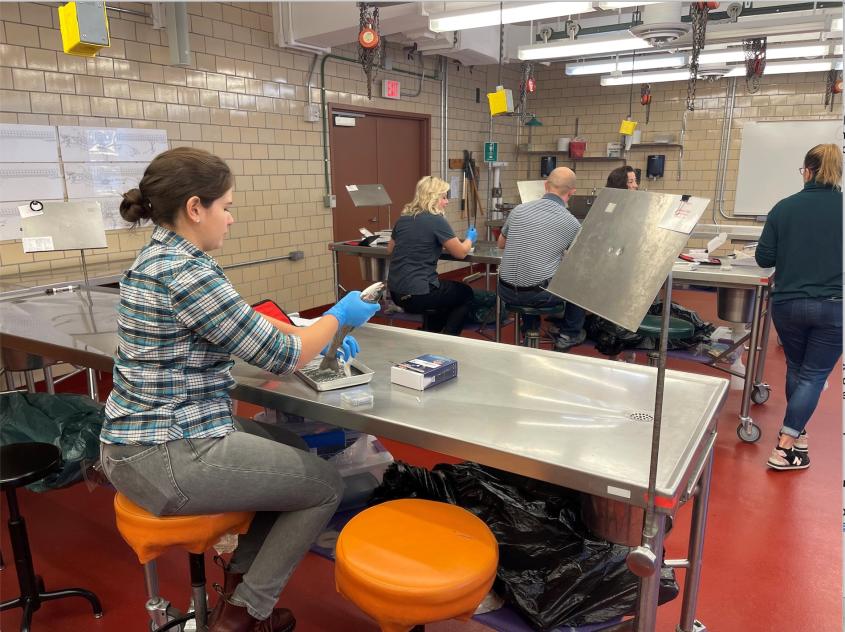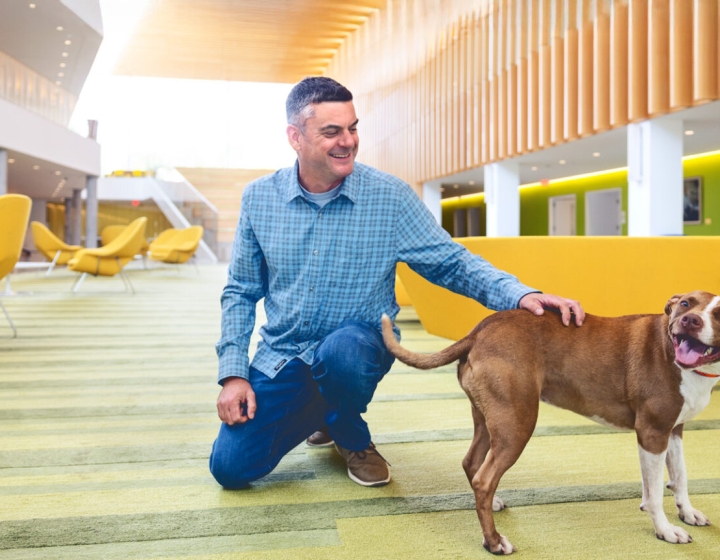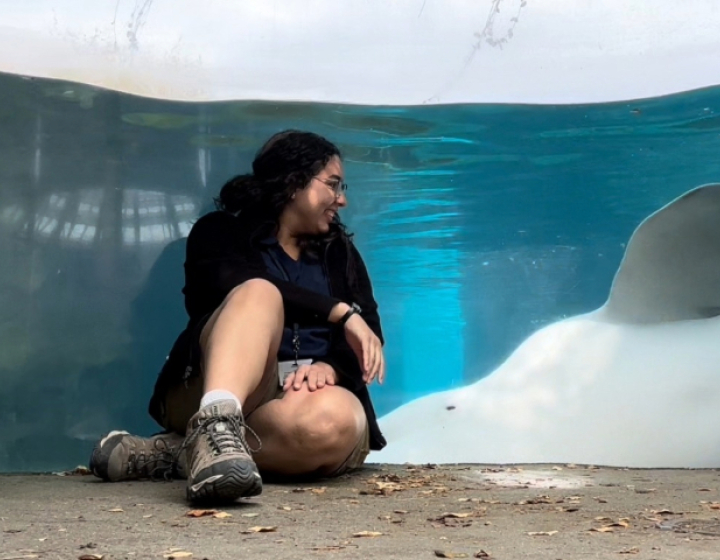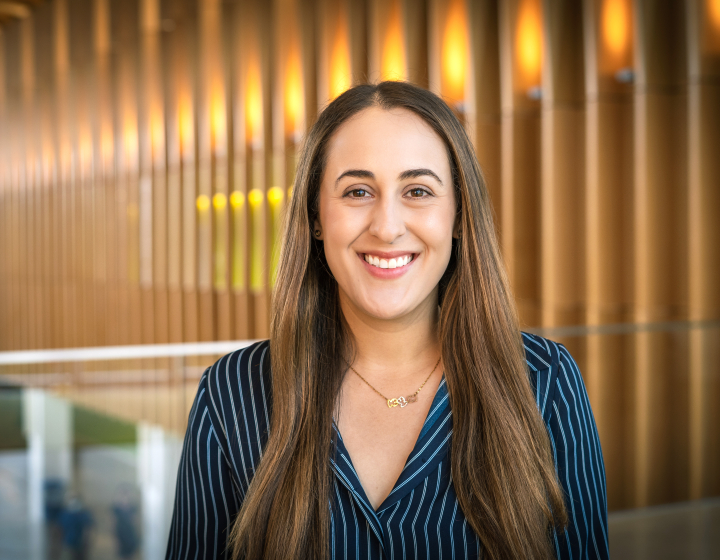Farmers and scientists gather for fish health workshop
On October 27, the Cornell University College of Veterinary Medicine (CVM) hosted the Great Lakes Aquaculture Days 2022 Fish Health Workshop. New York state fish farmers, graduate students from CVM and the College of Agriculture and Life Sciences, and researchers from Cornell and other NYS universities gathered to join for a day of hands-on learning and shared expertise in fish health. The event is part of a series of initiatives that the Great Lakes Aquaculture Collaborative (GLAC) runs with the support of the National Oceanic and Atmospheric Administration Sea Grant (NOAA-Sea Grant) and took place simultaneously in some of the States part of the GLAC: amongst them New York, Minnesota, Illinois-Indiana, Ohio, Wisconsin.
As part of the event, local fish farmers were walked through a fish dissection with assistance from three Cornell veterinary students who had interest and knowledge in fish anatomy: Hery Ríos-Guzmán, D.V.M.’24; Brittany Torchia, D.V.M.’24; and Natalie Mee, D.V.M.’24. Adam Frosolone, D.V.M. ’26, attended the workshop presentations later in the day.
“The day was a great success,” says Dr. Loredana Locatelli, DMV ’93 Ph.D. ’10, lecturer in the Aquatic Animal Health Program and the Department of Microbiology and Immunology, who led the dissection. “The participants really enjoyed having our CVM students helping out during the necropsy, which was the real highlight of the day.”
In addition to the necropsy, the workshop also included talks given by fish health experts. Rod Getchell, Ph.D. ’02, assistant research professor in the Department of Microbiology and Immunology spoke on Cornell’s role in diagnostics related to fish health; Andy Noyes, pathologist at the New York State Department of Environmental Conservation (NY DEC) spoke about NYS fish health status and regulations in the state; and Emma Forbes, aquaculture specialist with New York Sea Grant spoke on the activities and objectives of the local GLAC for the promotion and development of inland and coastal aquaculture.
Events like these are crucial as the aquaculture industry goes through a transformation — traditional, smaller hatcheries are going out of business as intensive, high-tech large-scale operations are on the rise. New York state is becoming a leader of coastal aquaculture, such as oyster farms, with several new operations popping up around Long Island.
“We wanted to help fish farmers become more skilled in communicating to fish scientists and health professionals,” says Locatelli. With the hands-on dissection and talks from experts, the attendees were trained in identifying healthy versus diseased fish look like so they can more readily recognize signs of disease before it’s too late. These skills are vital as the world turns to aquaculture as a larger source of animal-based protein and aquaculture continues to grow in scale and intensity. “My hope is that the Sea Grant will help boost and connect these entrepreneurs,” says Locatelli, “and Cornell can continue providing training and expertise to ensure this industry grows in a sustainable way.”
Written by Lauren Cahoon Roberts
Photos: New York Sea Grant






